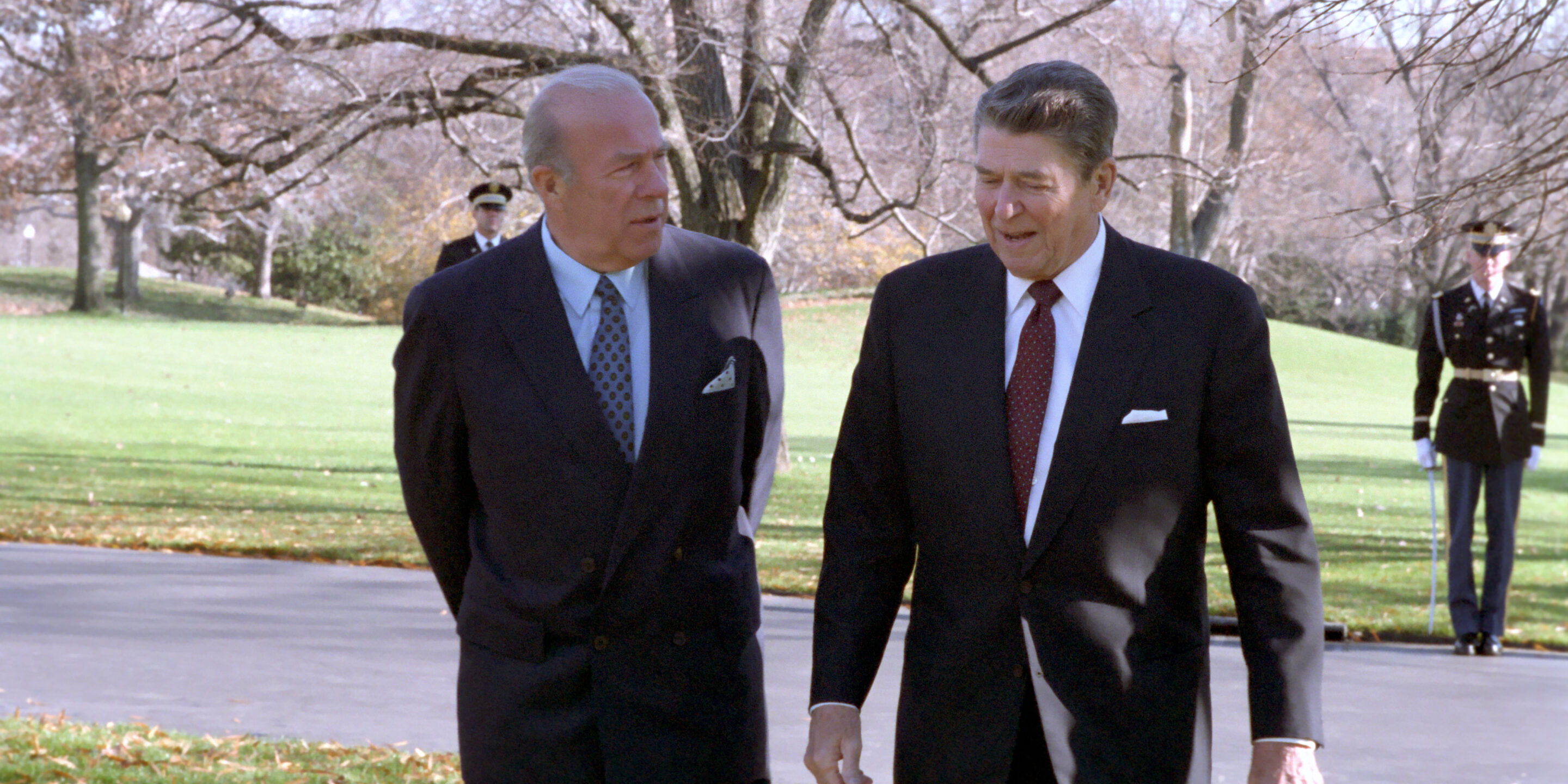Ronald Reagan has been dead for nearly twenty years, but sometimes it still feels like he’s still the head of the Republican Party. The fortieth U.S. President has been etched in American folklore as one of the country’s most effective and historic statesman, the man who stared down the Soviet Union and pursued policies that ultimately brought down the so-called “Evil Empire” in December 1991. Republican politicians of all stripes, from presidential aspirants to local councilmembers, utter his name at every opportunity. The first GOP presidential debate took place at the Reagan Library in Simi Valley, California, where multiple candidates looked back at the 1980s as a time when the mighty US shook off the cobwebs from the Vietnam War and rediscovered its self-confidence.
Reagan, however, wouldn’t have been Reagan were it not for George Shultz, his longtime secretary of state. And it’s unlikely Washington’s four decade-long Cold War competition with Moscow would have ended as soon as it did without Shultz directing American diplomacy and implementing Reagan’s vision to the detriment of hawks, like Defense Secretary Caspar Weinberger and National Security Advisor William Clark, who used their positions to slow-roll stable co-existence with the Soviets. This is the main subject of a recent book about George P. Shultz, titled In the Nation’s Service, by Stanford University’s Philip Taubman, a former New York Times national security correspondent during the Reagan era.
Events on Grand strategy




